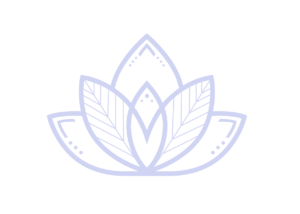
Sirina Shepherd LCSW
If you’ve ever read The Five Love Languages by Dr. Gary Chapman, you know how much buzz it’s gotten over the years. The idea that we all have a special way we like to give and receive love — words of affirmation, acts of service, gifts, quality time, or physical touch — has helped a lot of couples understand each other better.
But what happens when speaking your partner’s love language still doesn’t seem to fix the distance between you?
If you’re trying to “do all the right things” and it’s not landing the way you hoped, you’re not alone. Love languages can be helpful, but they’re not the whole story. Relationships are living, breathing things — and just like people, they change over time. When we hold too tightly to the idea of love languages as the only answer, it can leave both partners feeling stuck, frustrated, and unseen.
Why Love Languages Sometimes Fall Short
At first, love languages can feel like a magic key to connection. But over time, they can create a false sense of security — like if we just keep doing what worked before, everything should stay good. The truth? Needs shift as life changes. A partner who once felt most loved through words might now crave more quality time or emotional support.
If we don’t check in and grow with each other, love can start to feel rigid, almost like we’re just going through the motions instead of really being together.
So, What Can You Do?
Here’s how you can reconnect without getting trapped by the “love language” checklist:
✨ Talk about it — often.
Instead of assuming you know what your partner needs, check in. Ask things like, “What’s been making you feel connected lately?” or “Is there something you’ve been needing more of from me?” You might be surprised how different the answers are from a few months ago.
✨ Expand what love looks like.
Love isn’t just about sweet notes or washing the dishes. It can show up in being fully present, supporting dreams, or sharing a deep laugh. Stay open to new ways of giving and receiving love.
✨ Get curious about your own needs.
Sometimes we cling to a certain way of being loved because of old wounds or unmet needs from the past. Reflecting on why certain gestures mean so much can help you (and your partner) understand each other on a whole new level.
✨ Focus on flexibility, not perfection.
Instead of expecting love to look a certain way, notice the intention behind what your partner is trying to give. Appreciate the effort — even if it doesn’t come perfectly packaged.
✨ Share needs gently, without blame.
When you feel disconnected, try saying something like, “I’ve been missing hearing what you appreciate about me lately” instead of “You never say anything nice about me.” It invites connection rather than defensiveness.
When You Might Need a Little Extra Help
Sometimes, even with the best intentions, it’s hard to shift patterns on your own. That’s where couples counseling can make a huge difference. Therapy gives you a safe space to:
✨Identifying Unspoken Needs – A therapist can help both partners articulate their evolving emotional needs in ways that may not be obvious in day-to-day interactions.
✨Breaking Out of Rigid Patterns – Couples often fall into habitual ways of expressing love that may no longer be effective. A therapist can provide alternative approaches to connection that better align with each partner’s current emotional state.
✨Teaching Adaptive Communication Skills – Rather than focusing on static love languages, therapy fosters dynamic communication skills that help partners navigate changes in their relationship with empathy and curiosity.
✨Addressing Resentment Before It Builds – When partners feel unheard or unappreciated, resentment can grow over time. Counseling helps uncover and address these emotions before they become deeply ingrained, allowing couples to reconnect from a place of understanding rather than frustration.
✨Providing a Safe Space for Growth – Sometimes, couples struggle to have these conversations on their own due to fear of conflict or misunderstanding. A trained therapist creates a neutral environment where both partners can explore their feelings and needs without judgment.
The truth is, love languages are just one tool. Real, lasting connection comes from growing together, staying curious about each other, and being willing to adapt — over and over again.
See our Couples Intensives and Traditional Couples Therapy to learn if one might be a best fit for you
